Wayne County tax foreclosure deadline: What homeowners, tenants should know
The March 31 deadline for Wayne County residents behind on their property taxes to avoid foreclosure is fast approaching.
People with property tax debt from 2019 or prior years have until the end of the month to pay off back taxes or enter into a payment plan before their property goes to auction in the fall.
Renters do not have to leave their property if it ends up getting foreclosed, Wayne County Treasurer Eric Sabree said.
As of Thursday, there were 3,177 owner-occupied and 5,032 nonowner properties — including rentals — at risk of foreclosure this year, according to the Treasurer's Office. The majority are in Detroit.
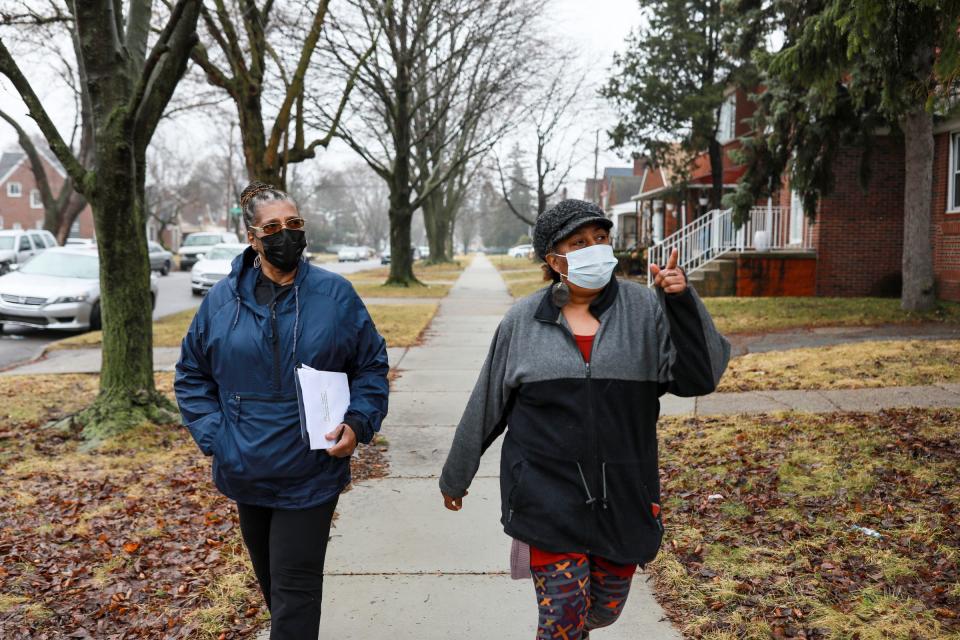
Sabree estimates that about 1,200 owner-occupied homes and as many as 2,000 or 3,000 renter-occupied properties could end up getting foreclosed this year.
More: Wayne County extends payment plan deadline for properties at risk of foreclosure
More: $243M fund to help Michiganders stay in homes will include those with land contracts
In 2020, there were no foreclosures because of the COVID-19 pandemic's economic blow. And last year, Sabree filed a request in Wayne County Circuit Court to defer foreclosures on occupied properties because of continuing pandemic-related hardships, however foreclosures on unoccupied properties and vacant land continued. That runs through March 31.
Sabree has indicated that he would stick to the deadline this year. In the past there were extensions.
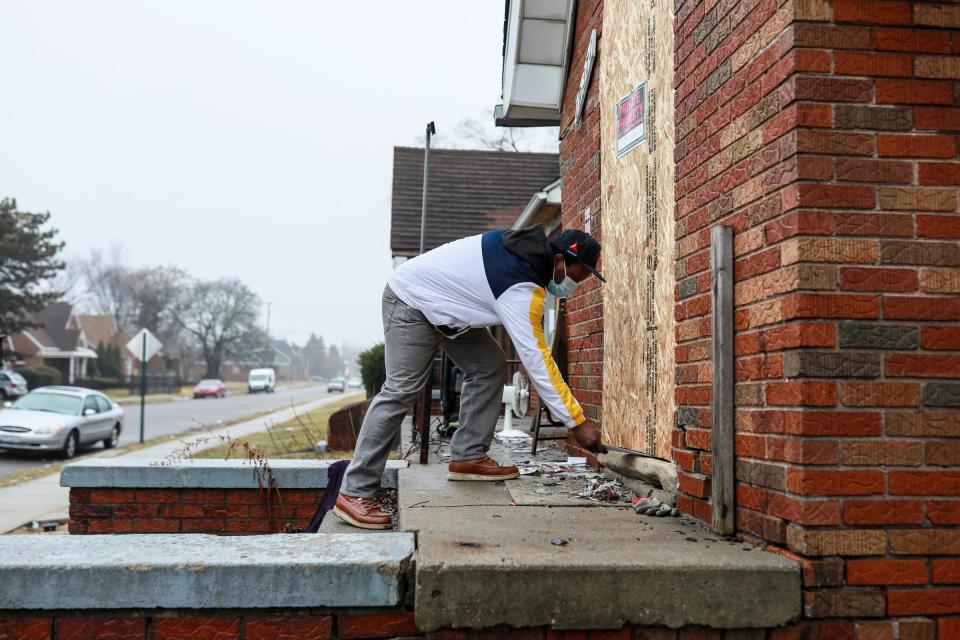
Tax foreclosures — the process by which a homeowner loses their property because they didn't pay their property taxes — are an ongoing concern in Detroit where a third of the city's properties were foreclosed since 2008 and where homeowners were overtaxed by at least $600 million, according to a 2020 Detroit News investigation.
The number of tax foreclosures on occupied homes in Detroit has dropped in recent years, but there are still those who struggle to pay off delinquent tax debt.
Groups like the Eastside Community Network — a Detroit-based nonprofit offering resources and programs for economic development, businesses and youths — are calling up residents and knocking on their doors to inform them about the upcoming deadline and their options.
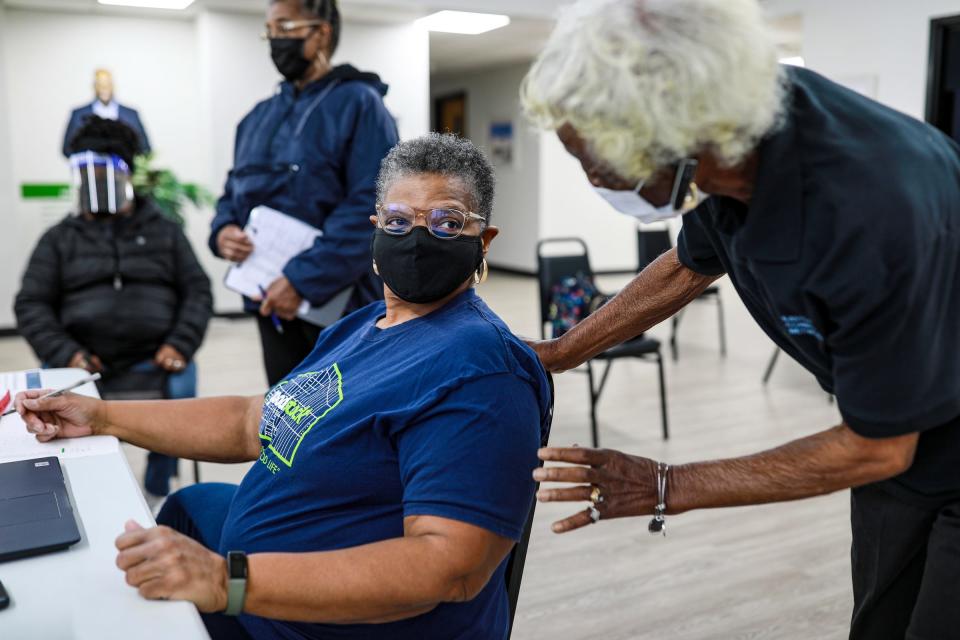
"We just are here to make sure people know that they're not alone and that our goal is to help them keep their home," said Angela Wilson, chief operating officer for the Eastside Community Network.
Here's a brief rundown of what taxpayers should know:
How do I check if my property is at risk of foreclosure?
The Free Press has partnered with Outlier Media — which runs an SMS texting service — to give Detroit residents the ability to look up their address and check whether it is at risk of foreclosure by texting HOUSING to 67485. Data is current as of Feb. 14.
More up-to-date information may be available at the following websites:
The Treasurer's Office has a list of properties at risk of foreclosure. Download it at www.waynecounty.com/elected/treasurer/.
Taxpayers can also search for delinquent property tax information at https://pta.waynecounty.com/.
How can I get help paying my property tax debt?
Last month, the state launched a program called the Michigan Homeowner Assistance Fund that can help income-eligible residents who live in their homes to avoid foreclosure. To apply go to Michigan.gov/MIHAF. Call 844-756-4423 for additional help.
Taxpayers can let the Treasurer's Office know that they applied to the program and avoid property foreclosure for another year, Sabree has said.
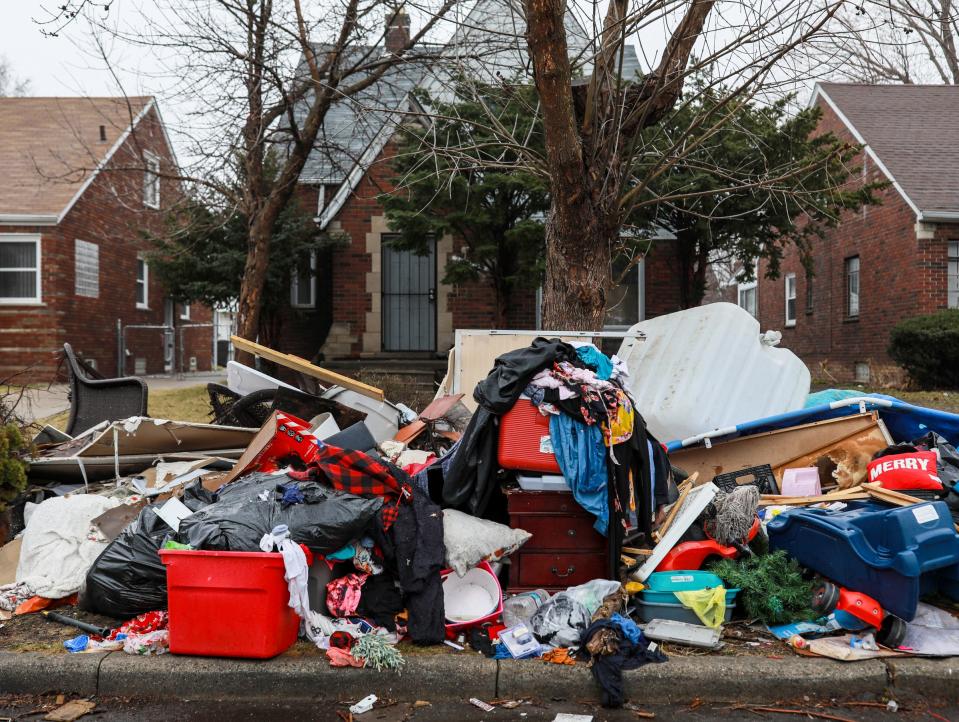
The county has other assistance programs, which can bring down interest rates, put people on payment plans or help some landlords and business owners hit hard by the financial blow of the pandemic.
For more information, go to bit.ly/WayneCountyPaymentPlans or email taxinfo@waynecounty.com.
The Treasurer's Office is open for appointments Monday to Friday and includes Saturdays in March. Go to bit.ly/WayneCountyTreasurerHours to set up an appointment.
Income-eligible taxpayers can also apply for a poverty tax exemption through their local assessor's office. In Detroit, that's called the Homeowners Property Exemption (HOPE) program and the city is taking applications for 2022.
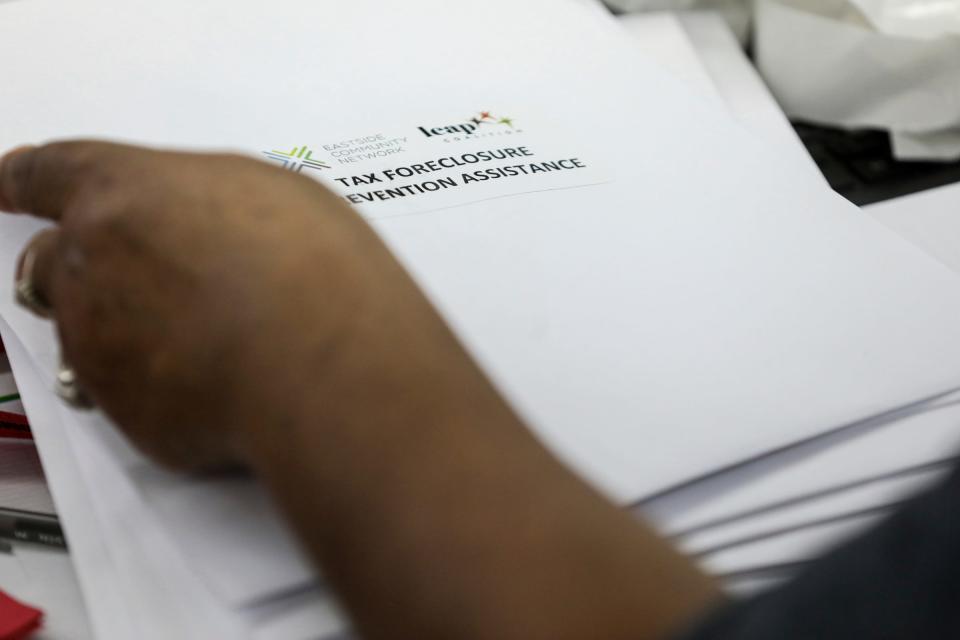
People who qualify for a poverty exemption may be eligible for the Wayne County Treasurer's Pay As You Stay program (PAYS), which reduces back tax debt.
Another program called the Detroit Tax Relief Fund can help people get their delinquent taxes down to zero. For program information, go to the Wayne Metropolitan Community Action Agency's website at www.waynemetro.org/dtrf/.
What should I do if I am a renter and my property is at risk of foreclosure?
Renters do not have to move out of their home after March 31. That's when the property's title passes onto the county treasurer. After that, foreclosed properties are made available to the local, state and county governments for purchase prior to the fall public auctions. Tenants can check with the treasurer about the status of their property.
"We don't evict anyone," Sabree said about his office. Tenants should not "panic and move," he said.
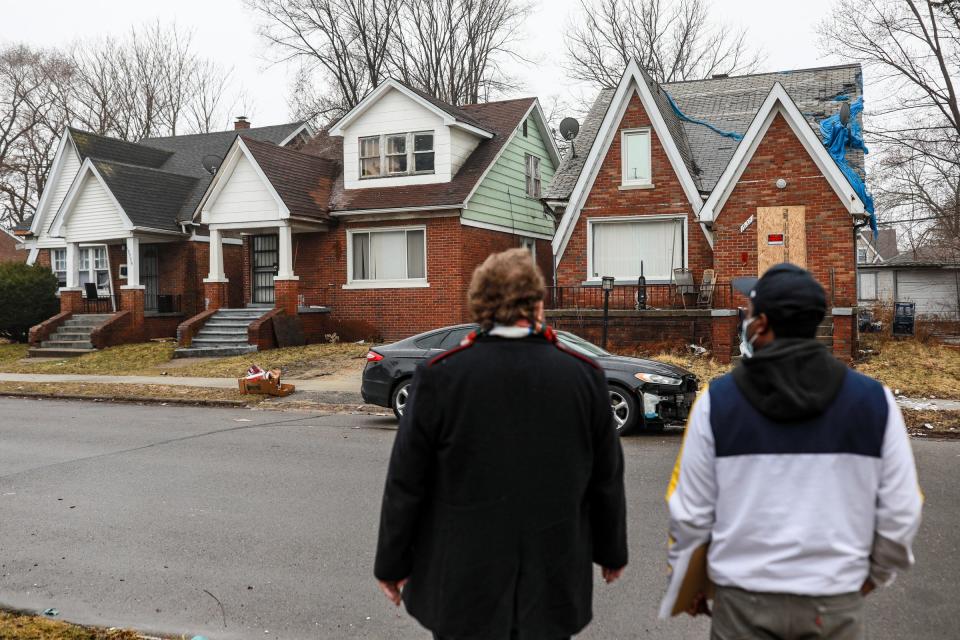
After July 1, the city can purchase homes through what's called the "right of refusal" process. During this time, tenants may have the chance to become homeowners. Since 2017, the Make It Home program — a partnership among the United Community Housing Coalition, the city of Detroit and Quicken Loans Community Fund — has helped residents living in foreclosed homes buy their properties before auction.
Ted Phillips, executive director of the United Community Housing Coalition, said the nonprofit is already working with potential candidates for this program.
Renters' rights don't change much just because the property is headed toward foreclosure, he said. In fact, it can be an opportunity for tenants to potentially own their homes and save money, he said.
"The landlord can't collect rent after April 1 if they don't own the property. They can't evict them. They can't do anything. It's not their property anymore," Phillips said.
Nushrat Rahman covers issues related to economic mobility for the Detroit Free Press and Bridge Detroit as a corps member with Report for America, an initiative of The GroundTruth Project. Make a tax-deductible contribution to support her work at bit.ly/freepRFA.
Contact Nushrat: nrahman@freepress.com; 313-348-7558. Follow her on Twitter: @NushratR. Sign up for Bridge Detroit's newsletter. Become a Free Press subscriber.
This article originally appeared on Detroit Free Press: Wayne County tax foreclosure deadline: What residents should know

